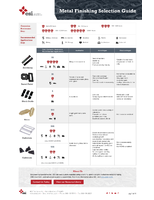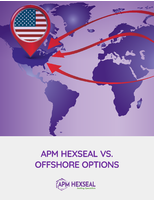Bosch Technologies Improve Fuel Efficiency of 2008 North American International Auto Show Vehicles
FARMINGTON HILLS, Mich., Jan. 17 -- With "green" technologies top of mind at this week's North American International Auto Show (NAIAS) in Detroit, Bosch supplies innovative technologies to several vehicles on display helping automakers bring cleaner and more efficient vehicles to consumers.
Two key powertrain technologies are becoming more prevalent on vehicles featured at NAIAS: Bosch common diesel rail and gasoline direct injection (GDI).
Bosch has assisted in making diesel a powerful and viable powertrain solution that when compared to gasoline vehicles offers consumers improved fuel economy of up to 30 percent, reduced carbon dioxide emissions by nearly 25 percent and increased performance with a 50 percent improvement in torque.
"Bosch has played a vital role in the advancement of diesel in the automotive industry," said Chris Qualters, director, marketing, North American Diesel Systems, Robert Bosch LLC. "With the introduction of common rail technology in 1997, Bosch brought a new dimension to the diesel engine market resulting in cleaner, quieter, more efficient and responsive vehicles."
Bosch's second generation gasoline direct injection system, DI-Motronic, is featured on the new Lincoln MKS and the acclaimed 2008 Cadillac CTS. DI- Motronic makes gasoline engines more economical and eco-friendly, reducing carbon dioxide (CO2) emissions by up to 15 percent through an improved gas and air mixture process. Emission values are below the strictest SULEV (super ultra low emission vehicle) limits in the United States by using optimized cold-starting combustion processes.
"Although alternative propulsion systems are growing in popularity, conventional internal combustion engines will remain the dominant powertrain option among U.S. light vehicles in the near future," said Sujit Jain, general manager, Gasoline Systems North America, Robert Bosch LLC. "Today's consumers are faced with rising fuel costs and a desire to reduce their impact on the environment. Bosch is committed to developing technologies that meet driver demands while benefiting the environment."
When combined with turbocharging, gasoline direct injection enables the development of smaller displacement engines that achieve the same output while consuming less fuel and producing fewer emissions. As a result of the scavenging process, which better allows the cylinders to fill with fresh air, higher torque is achieved, especially at low engine speeds.
The Bosch Group is a leading global supplier of technology and services. In the areas of automotive and industrial technology, consumer goods, and building technology, some 260,000 associates generated sales of 43.7 billion euros in fiscal 2006. The Bosch Group comprises Robert Bosch GmbH and its roughly 300 subsidiary and regional companies in over 50 countries. This worldwide development, manufacturing, and sales network is the foundation for further growth. Bosch spends more than three billion euros each year for research and development, and in 2006 applied for over 3,000 patents worldwide. The company was set up in Stuttgart in 1886 by Robert Bosch (1861- 1942) as "Workshop for Precision Mechanics and Electrical Engineering."
In North America, the Bosch Group manufactures and markets automotive original equipment and aftermarket products, industrial automation and mobile products, power tools and accessories, security technology, thermo-technology, packaging equipment and household appliances. Bosch employs 24,750 associates in more than 80 primary and 20 associated facilities throughout the region with reported sales of $8.8 billion in 2006. For more information on the company, visit www.bosch.us.
Source: Robert Bosch LLC
CONTACT:
Chandra Lewis
of Robert Bosch LLC,
+1-248-876-6731,
chandra.lewis@us.bosch.com
Web site: www.bosch.us/




